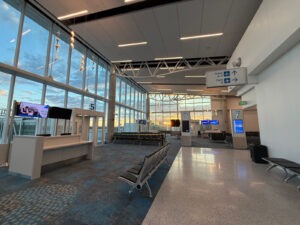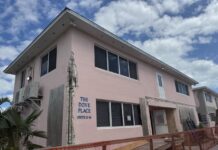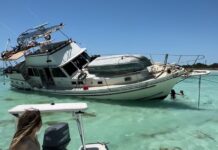If everything goes according to plan, Marathon hoteliers will build 220 brand new hotel rooms in 2013 — and that’s a conservative estimate. In addition to the town’s Holiday Inn Express, there would also be two Marriott hotels and a Hyatt.
The new rooms are, of course, the results of the Governor’s award of 100 new transient rental units (or TRUs) almost one year ago. It is the first time in about 30 years that Marathon has seen an increase in the number of hotel rooms; no new transient rental rights have been awarded to the Middle Keys since the 1980s, about the time Tallahassee took control of the Keys’ development plan.
Over the past 12 months, city officials, planners and area developers have been working on a method to distribute those rights among hotel owners and developers. The decision? Hotel owners or developers can apply for one TRU for every four they already own. The deadline to apply is Dec. 31, 2012 and city officials say the applications will be available next week. The Marathon City Council will review the applications at its meeting on Jan. 8, 2013.
Six developers have taken definitive steps to receive a TRU award. Bonefish Bay Motel, Faro Blanco Resort, Marriott Courtyard and Tranquility Bay have applied for a conditional use permit and submitted a development agreement — essentially the blueprints for development. Marathon Planning Director George Garrett has said he thinks those six will have all the paperwork completed. That would account for 65 of the 100 TRUs available. Two others — Coconut Cay and Crystal Bay — also have plans in the works.
But not one of the developers has actually submitted an application for the TRUs. The application fee costs $5,000, but the pause may also reflect the serious penalties if a developer fails to build within a certain timeframe and an applicant’s ability to demonstrate financial capability.
Jim Rhyne, owner of Coconut Cay in Marathon, said he will apply for six to eight TRUs but he’s still skittish because of the nation’s overall economic situation, in particular that of banks.
“I’m going to be skeptical until I see it. I’m skeptical of any funding until I see it,” he said. “It would be a great thing for Marathon, but I haven’t been able to get [the financing].”
Currently, Marathon has approximately 950 hotel rooms and 450 vacation rentals. If plans come to fruition and the 220 or more single-unit hotel rooms are built, it would have a huge impact; especially if the hotels are brand-name or “flag ship” hotels.
“Flag hotels have powerful online reservation systems, as well as national marketing campaigns,” said Daniel Samess, CEO of the Marathon Chamber of Commerce. “In addition, as the flag hotels fill up, other local properties benefit via ‘spill over.’ It’s good to have a mix of privately owned and flag properties.”
Middle Keys businessmen also point to the “ripple effect” associated with the new hotel rooms. They see the opportunity for new businesses to serve property owners and tourists, not to mention more jobs and sales tax revenue.
The 100 transient units may also stimulate the private sector because many developers need more development rights than they already own or would be handed out by the city to develop the flagship properties. Those rights must be purchased on the private market. For example, the developers of the Marriott Courtyard purchased the former Longhorn Lodge – and its development rights to almost 40 units — for more than $1 million earlier this year.
























